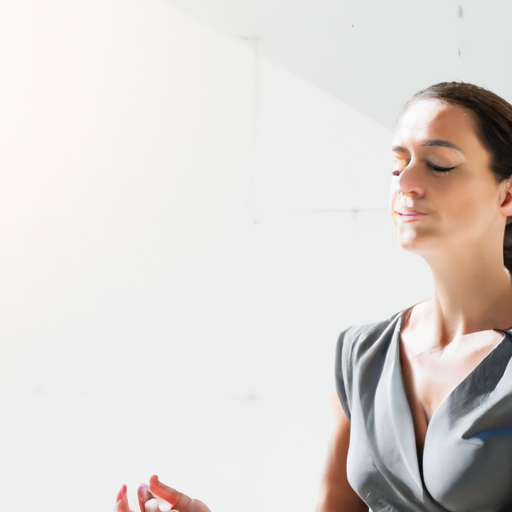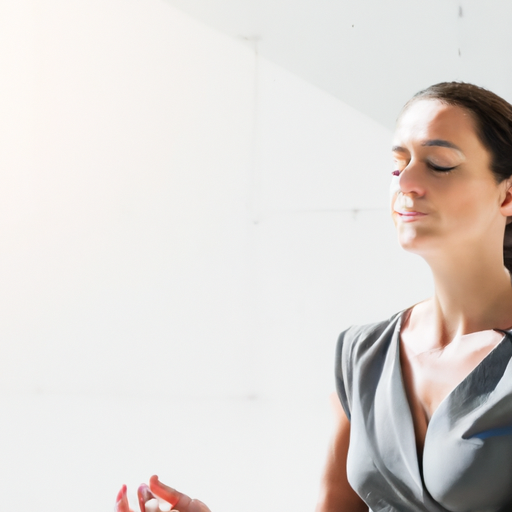
Have you ever wondered if Reiki Healing is safe? Well, the good news is that it is! Reiki Healing is a gentle and non-invasive energy healing technique that promotes relaxation, stress reduction, and overall well-being. It originated in Japan and has been practiced for centuries, with countless people finding relief and healing through this method. In this article, we’ll dive deeper into the world of Reiki Healing and explore its safety measures, benefits, and how it can enhance your physical, emotional, and spiritual health. So if you’re curious about Reiki Healing and want to learn more, keep reading!
When it comes to safety, Reiki Healing is completely safe and can be practiced by anyone, regardless of age or health condition. Unlike invasive medical procedures or medications that may have side effects, Reiki Healing uses the body’s own natural healing abilities to restore balance and harmony. The practitioner gently places their hands on or slightly above different parts of your body to channel energy and help clear any blockages. Reiki Healing is not based on any religious or spiritual beliefs, making it accessible to people of all backgrounds. Whether you’re seeking relief from physical pain, emotional stress, or simply want to improve your overall well-being, Reiki Healing can provide a safe and effective method to support your healing journey. Stay tuned, as we delve into the numerous benefits of Reiki Healing and how it can positively impact your life.

Understanding Reiki Healing
Reiki Healing is a form of alternative therapy that aims to promote healing and relaxation. It involves the practitioner placing their hands lightly on or just above the body, allowing the flow of energy to transfer to the recipient. This ancient healing technique is believed to balance the energy within the body and help restore physical, emotional, and spiritual well-being.
What is Reiki Healing?
Reiki Healing is a Japanese healing technique that originated in the early 20th century. The word “Reiki” is derived from two Japanese words – “Rei,” which means universal or spiritual, and “Ki,” which means life force energy. According to Reiki practitioners, this life force energy flows through all living beings and is responsible for our overall health and well-being.
How does Reiki Healing work?
Reiki Healing works by channeling the universal life force energy through the practitioner’s hands into the recipient’s body. The practitioner acts as a conduit for this energy, allowing it to flow to the areas in need of healing or balance. It is believed that this energy stimulates the body’s natural healing processes, promoting relaxation, reducing stress, and enhancing overall well-being.
The history of Reiki Healing
Reiki Healing was developed by Mikao Usui, a Japanese Buddhist monk, in the early 1900s. Usui reportedly rediscovered the ancient healing traditions used by Buddhist monks and developed a systematic method known as Usui Reiki. Since then, Reiki Healing has spread across the world and has been adapted and modified by various practitioners, resulting in different forms of Reiki.
Safety Concerns in Reiki Healing
Are there any side effects of Reiki Healing?
Reiki Healing is generally considered safe and does not have any known side effects. The gentle and non-invasive nature of the technique makes it suitable for people of all ages, including infants, pregnant women, and those recovering from surgery or illness.
Can Reiki Healing cause harm?
Reiki Healing is a gentle practice that focuses on promoting healing and relaxation. However, it is important to note that Reiki should not be used as a substitute for medical treatment. While it can be used alongside conventional medicine, it should not be used as a primary treatment for serious medical conditions. It is always recommended to consult with a qualified medical professional for any health concerns.
Does Reiki Healing interfere with medical treatments?
Reiki Healing is a complementary therapy that can be used alongside traditional medical treatments. It does not interfere with medications or medical procedures. However, it is essential to inform your healthcare provider about any alternative therapies you are using to ensure proper coordination of your care.
Scientific Research on Reiki Healing
What does scientific evidence say about Reiki Healing?
Scientific research on Reiki Healing is limited, and there is a lack of controlled studies to provide conclusive evidence of its effectiveness. However, some studies suggest that Reiki may have positive effects on pain reduction, anxiety, and relaxation.
Are there any studies on the safety of Reiki Healing?
While studies on the safety of Reiki Healing are limited, the gentle nature of the practice and the absence of reported adverse effects indicate its relative safety. Reiki Healing is generally considered a low-risk therapy when performed by trained and qualified practitioners.
Criticism and skepticism towards Reiki Healing
Reiki Healing, like any alternative therapy, has faced criticism and skepticism from some quarters of the medical community. Critics argue that the lack of scientific evidence and the reliance on energy healing concepts make it difficult to assess the true effectiveness of Reiki. However, proponents of Reiki argue that its benefits are based on personal experiences and the overall sense of well-being reported by many recipients.
Expert Opinions on Reiki Healing Safety
What do professionals in the medical field say about Reiki Healing?
Opinions among professionals in the medical field may vary regarding Reiki Healing. Some healthcare providers are open to the idea of complementary therapies like Reiki, acknowledging its potential benefits in promoting relaxation and overall well-being. Others may be more skeptical due to the lack of scientific evidence supporting its effectiveness.
Is Reiki Healing recognized by medical associations?
While Reiki Healing may not be universally recognized or endorsed by all medical associations, some healthcare institutions and professional organizations have started to acknowledge the potential benefits of Reiki and include it as part of their integrative medicine programs. However, it is important to note that recognition may vary between different countries and institutions.
Are there any risks involved in receiving Reiki Healing from untrained practitioners?
Receiving Reiki Healing from untrained or unqualified practitioners may carry certain risks. It is essential to ensure that your Reiki practitioner has received proper training and certification from a credible organization. Qualified practitioners will have the necessary knowledge and understanding of the techniques, ensuring a safe and effective session.

Personal Experiences with Reiki Healing
Testimonials from individuals who have experienced Reiki Healing
Many individuals have reported positive experiences with Reiki Healing, describing improved relaxation, reduced stress, and a sense of overall well-being. They often highlight the gentle and calming effects of the practice on their physical, emotional, and spiritual levels.
Are there any reported negative experiences with Reiki Healing?
While negative experiences with Reiki Healing are rare, some individuals may not experience the desired effects or may not resonate with the practice. It is essential to approach Reiki with an open mind and understand that individual experiences may vary.
The importance of finding a qualified Reiki practitioner
To ensure a safe and beneficial Reiki Healing experience, it is crucial to find a qualified and trustworthy practitioner. Ask for recommendations, inquire about their training and certification, and feel free to ask any questions or express any concerns you may have before starting a session.
Precautions and Guidelines for Reiki Healing
What should one consider before undergoing Reiki Healing?
Before undergoing Reiki Healing, it is essential to take into consideration any existing health conditions or concerns. While Reiki is generally safe, it is important to inform your practitioner about any medical or psychological conditions you may have.
Safety measures for Reiki Healing sessions
During a Reiki Healing session, the practitioner will typically ask you to lie down or sit comfortably. It is important to communicate any discomfort or pain during the session so that the practitioner can make necessary adjustments. Maintain open communication and follow any guidelines or instructions provided by the practitioner.
How to choose a reliable Reiki practitioner
To choose a reliable Reiki practitioner, consider their training, certification, and experience. It can be helpful to ask for recommendations or search for credible Reiki organizations or professional associations in your area.
Legal and Ethical Considerations in Reiki Healing
Regulations surrounding Reiki Healing
Regulations surrounding Reiki Healing can vary between different countries and jurisdictions. In some areas, there may be specific laws or guidelines governing the practice, while in others, it may be unregulated. It is important to research and understand the legal status of Reiki Healing in your locality.
Ethical practices in the Reiki Healing industry
Ethical practices in the Reiki Healing industry include maintaining confidentiality, respecting boundaries, and obtaining informed consent from clients. Reiki practitioners should adhere to a code of ethics and provide a safe, supportive, and non-judgmental environment for their clients.
What to do in case of malpractice or misconduct
If you believe you have experienced malpractice or misconduct during a Reiki Healing session, it is important to address the issue promptly. Contact the appropriate regulatory bodies or professional associations to report any concerns or seek guidance on the matter.
Integration of Reiki Healing with Traditional Medicine
Can Reiki Healing complement or be used alongside conventional medicine?
Reiki Healing is often used as a complementary therapy alongside conventional medicine. It can provide emotional support, enhance relaxation, and promote overall well-being. However, it is crucial to remember that Reiki should not replace medical treatment for serious health conditions.
Collaboration between Reiki practitioners and healthcare providers
Collaboration between Reiki practitioners and healthcare providers can foster a more holistic approach to patient care. Some hospitals and healthcare facilities have started to include Reiki in their integrative medicine programs, recognizing the potential benefits it can offer to patients.
The importance of open communication between Reiki practitioners and patients
Open communication between Reiki practitioners and patients is vital for a safe and effective healing experience. Patients should feel comfortable discussing their health concerns and treatment plans with their Reiki practitioner, while practitioners should be open to listening and addressing any questions or concerns raised by their clients.
Common Misconceptions about Reiki Healing Safety
Addressing myths and misconceptions about Reiki Healing
There are several misconceptions surrounding Reiki Healing, including claims that it is a religion, that it involves the transfer of negative energy, or that it can harm individuals. It is important to address these myths and provide accurate information to dispel any misunderstandings.
Separating facts from fiction in relation to Reiki Healing safety
The facts about Reiki Healing safety are that it is generally considered safe, does not have any known side effects, and can be used alongside conventional medicine. However, it is crucial to acknowledge the limitations of scientific research and the need for individual judgment when considering alternative therapies.
Education and awareness to dispel false beliefs
Education and awareness are essential to dispel false beliefs about Reiki Healing safety. Providing accurate information, encouraging open dialogue, and promoting critical thinking can help individuals make informed decisions regarding their health and well-being.
Conclusion
Overall, Reiki Healing is considered safe when practiced by trained and qualified practitioners. While scientific research on its effectiveness is limited, many individuals report positive experiences and benefits from the practice. It is important to approach Reiki Healing as a complementary therapy and to maintain open communication with healthcare providers. Finding a qualified practitioner, conducting personalized research, and using personal judgment are crucial in ensuring a safe and beneficial Reiki Healing experience.










